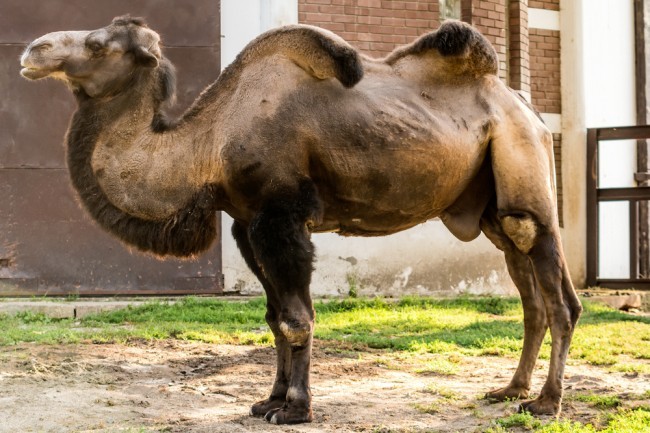
What ever happened to good, old fashioned cow milk? It was good enough for our parents and it’s good enough for us, right? Everywhere you look, there’s a different milk variation. From soy to almond to goat to cockroach it seems like you can milk just about anything.
One of the newest, popular milk choices among the young and trendy is raw, unpasteurized camel milk. Yes, milk from one of those hump-covered desert horses you’ve seen in the movies. It’s available for anyone willing to shell out $18 for a single pint. Do you know how many gallons of regular milk you could buy for that ridiculous sum of cash? At least five. That’s a lot of missed calcium. Would you rather have strong bones or drink some weird, random milk? Apparently, a lot of people don’t share our fears of one day breaking a clavicle.
Don’t feel bad if you haven’t heard about the camel milk trend, there’s really only one name in the game and it’s Desert Farms. The aptly named brand was founded by Walid Abdul-Wahab after uncovering supposed health benefits during a class project at USC.
It’s sold at Whole Foods and various supermarkets in California (as well as online), but the FDA isn’t happy about some of the claims the company has made. It seems skinny-jean wearing hipsters and granola-eating nature enthusiasts are buying up all the camel milk because they believe that it has a bevy of miraculous health benefits, including: helping with Crohn’s Disease and Autism, being a great source of vitamin C, and helping prevent diabetes.
The problem: those health benefits are completely unsubstantiated and likely not completely true according to a recent warning letter from FDA. The FDA get’s pretty annoyed when companies try to say their product can cure diseases or illnesses without being an actual tested medicinal product. They get really mad when companies list their unproven products as a “drug”.
“The therapeutic claims on your website and Facebook page establish that these products are drugs because they are intended for use in the cure, mitigation, treatment, or prevention of disease,” said the letter from the FDA. “As explained further below, introducing or delivering these products for introduction into interstate commerce for such uses violates the Act.”
Whether or not this dissuades you from shelling out almost $20 for a few glasses of camel milk is up to you. Maybe, even if only by the placebo effect, drinking this exotic milk actually makes you feel better. If so, good for you. The only thing for sure is that for camel milk drinkers, every day is hump day. Just don’t skip your annual physical.






